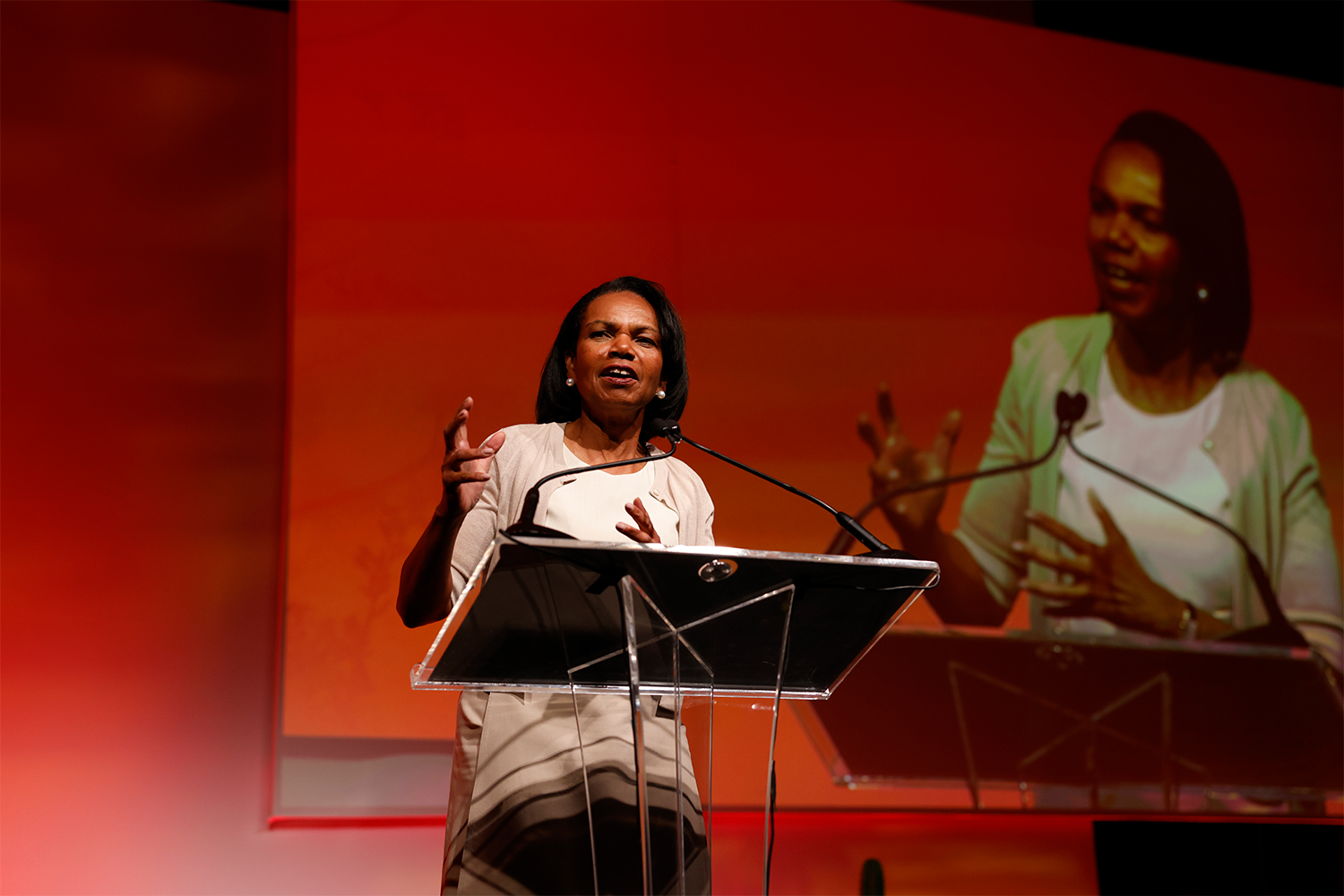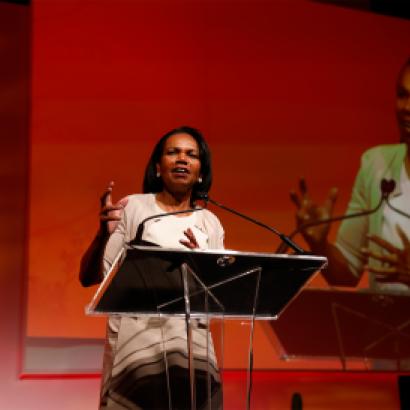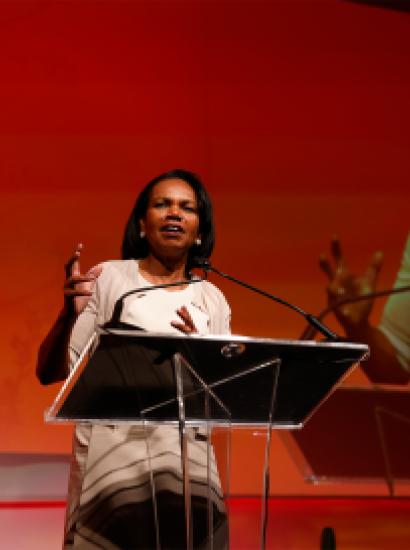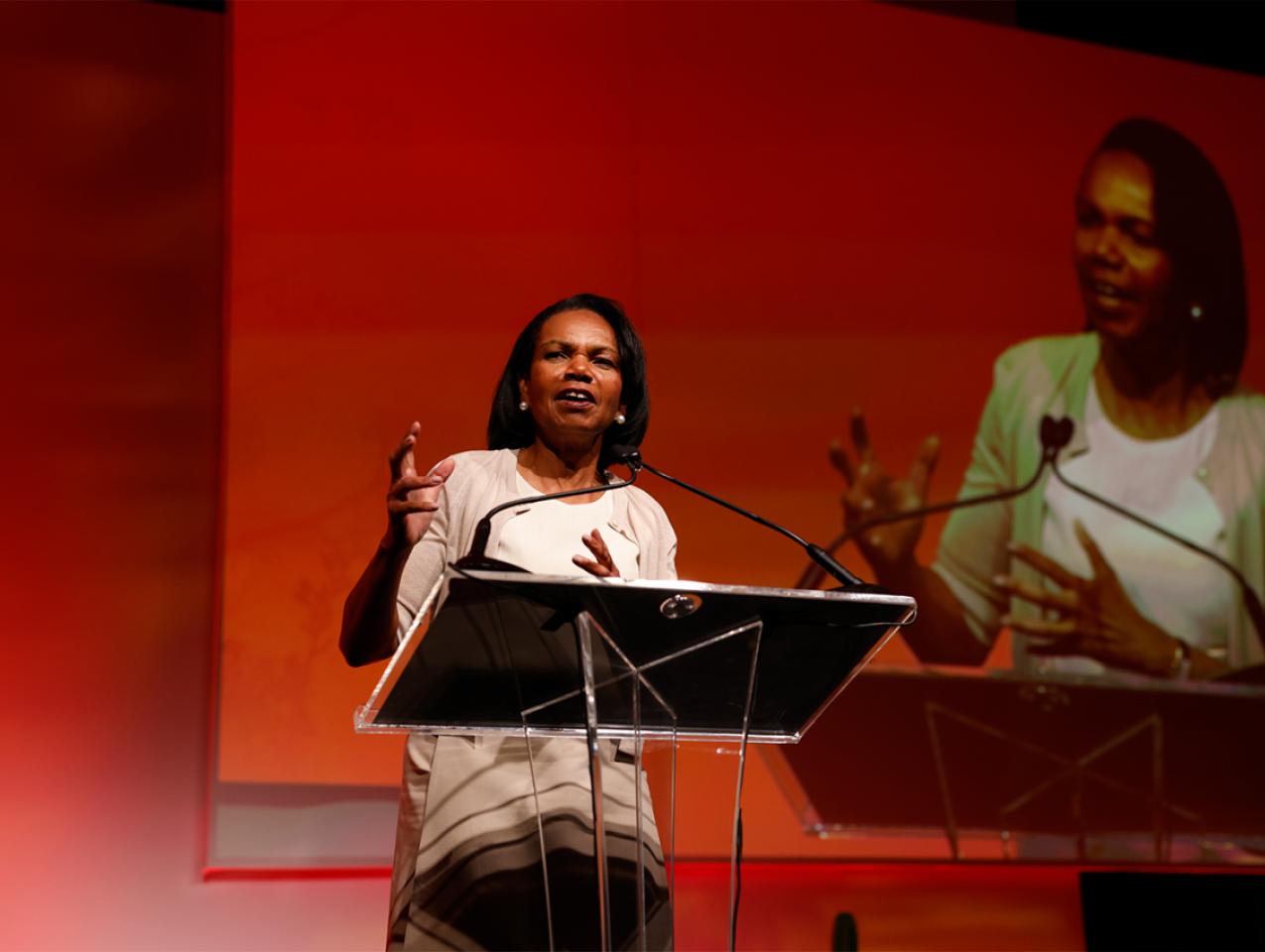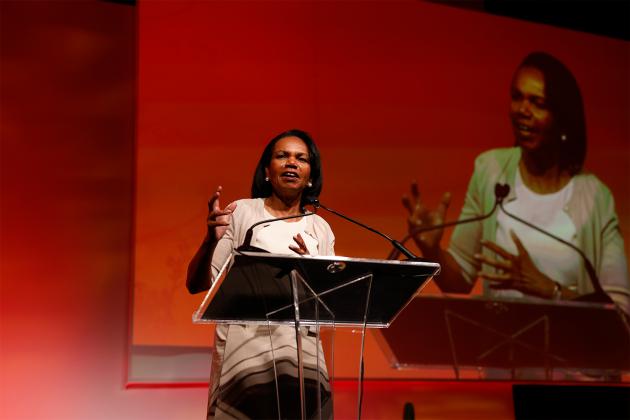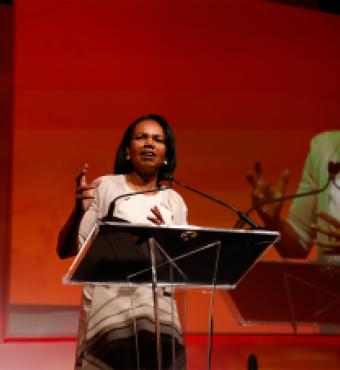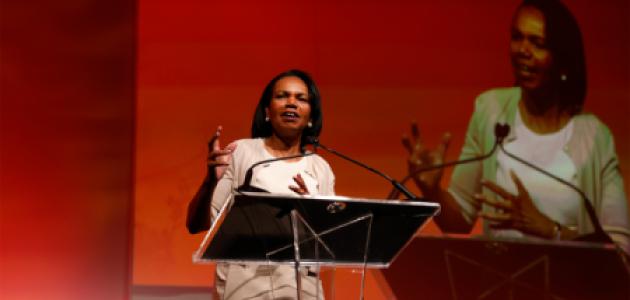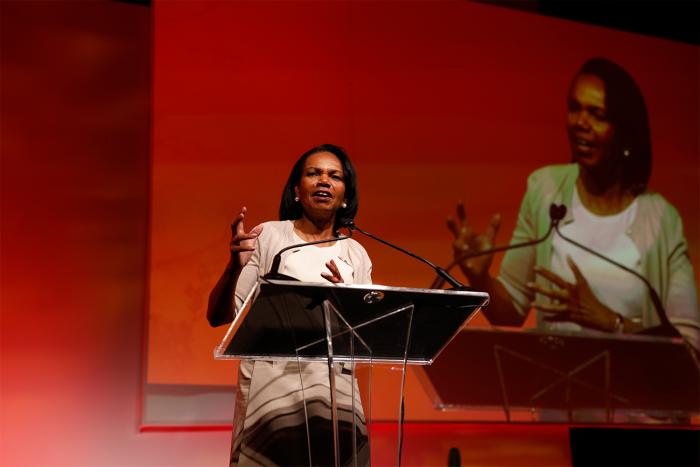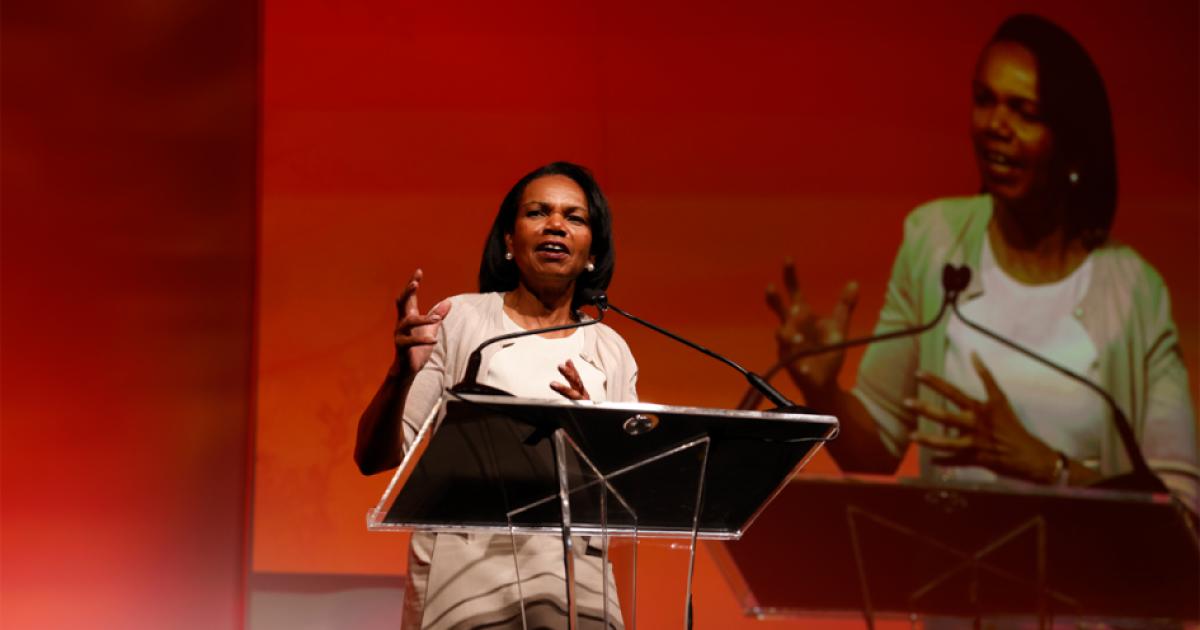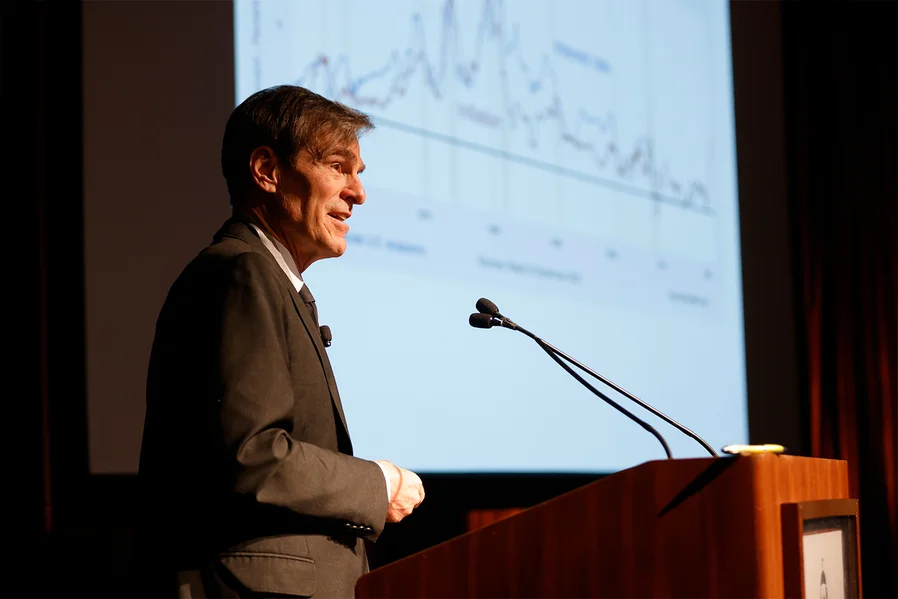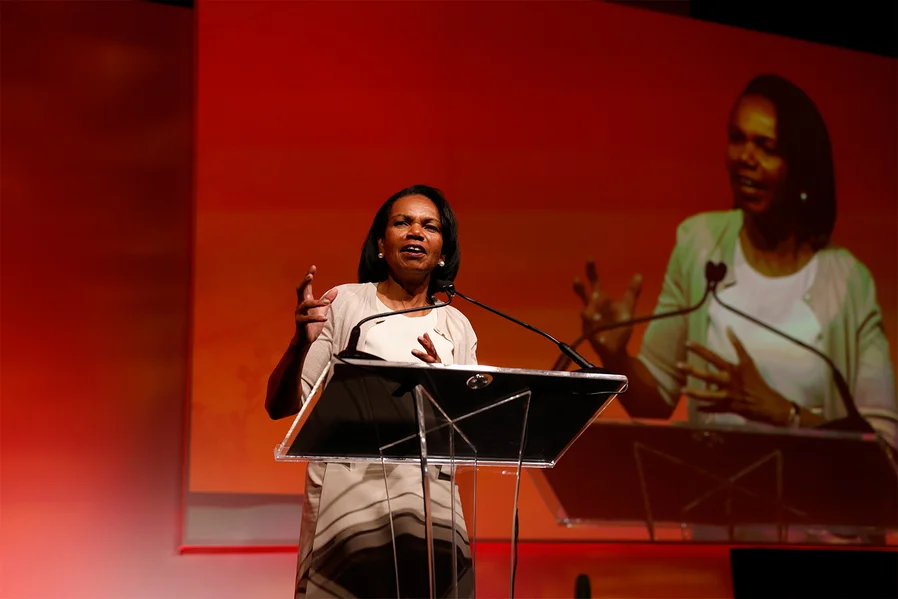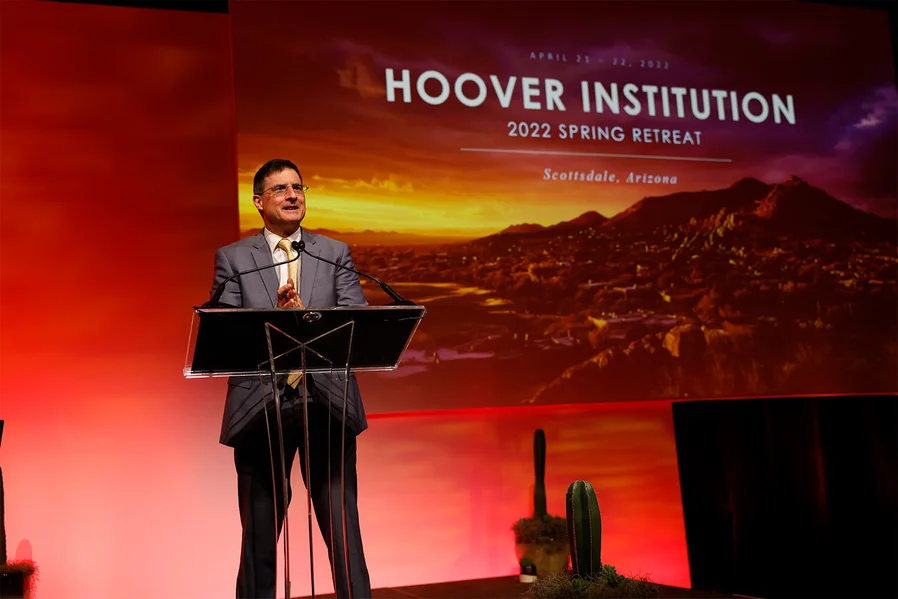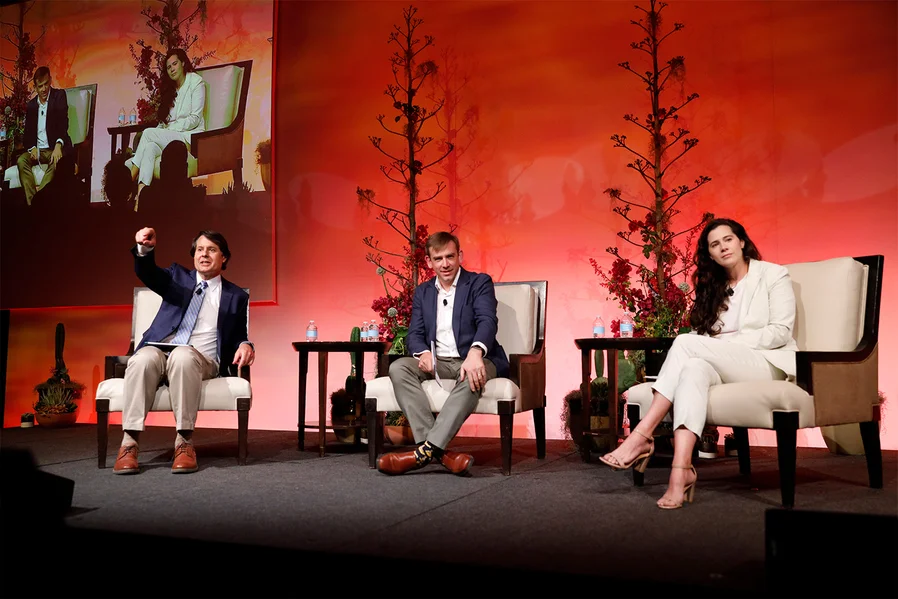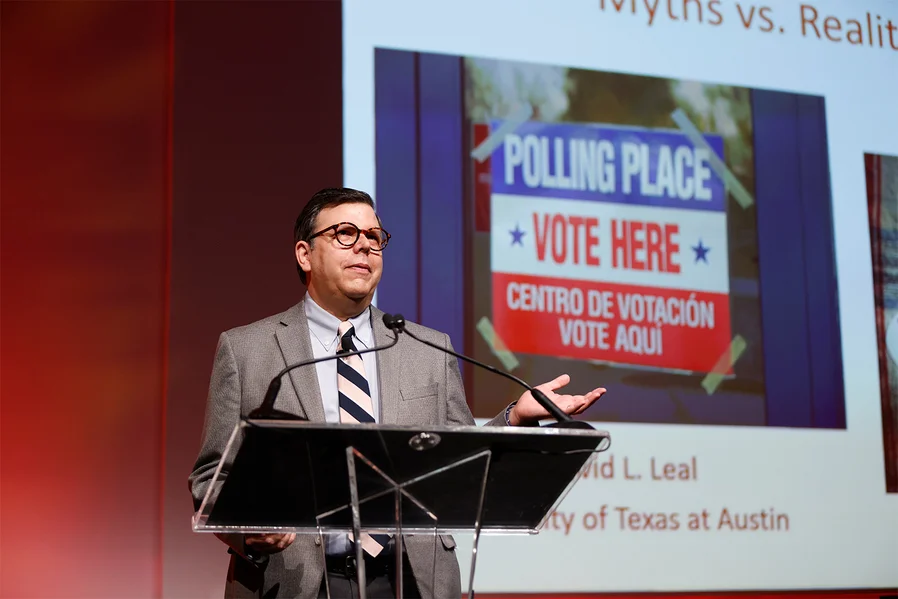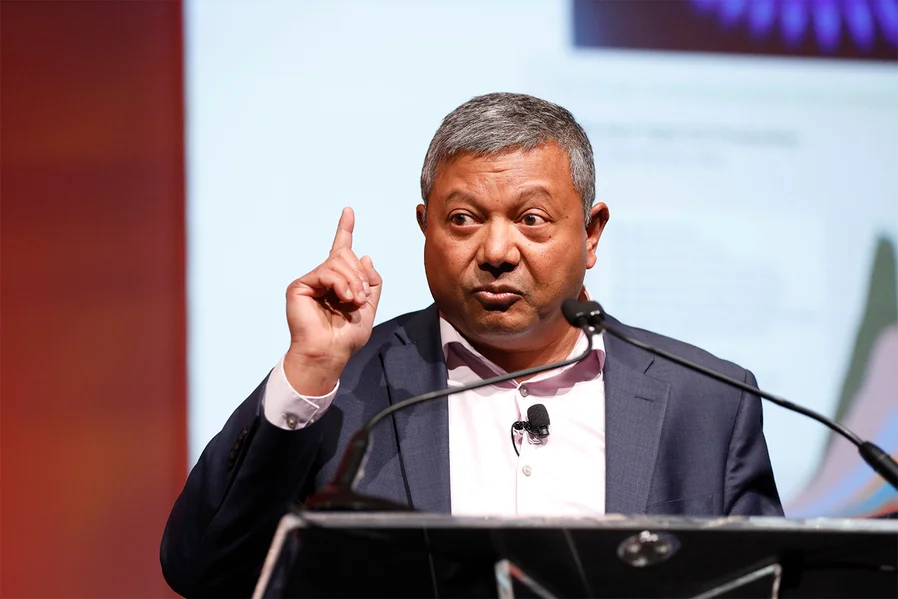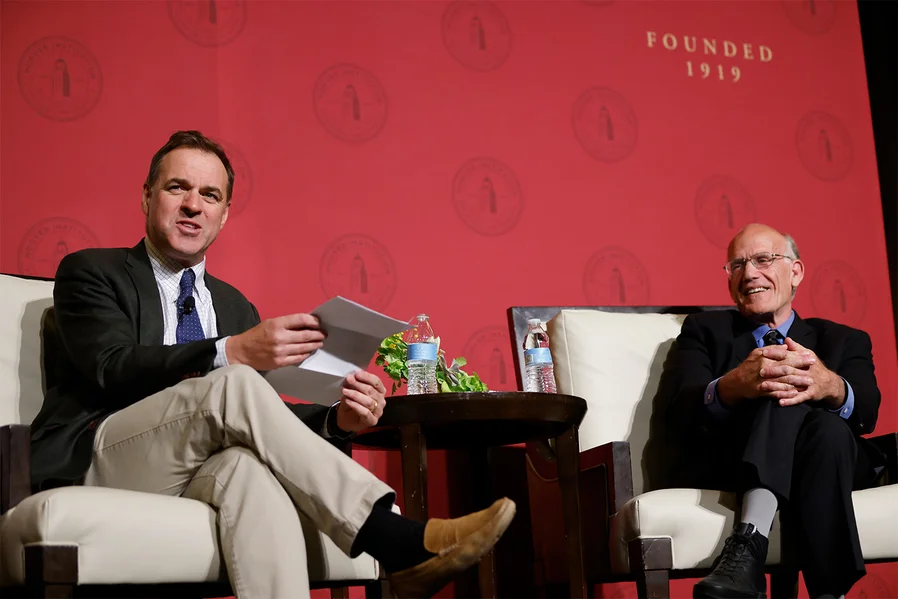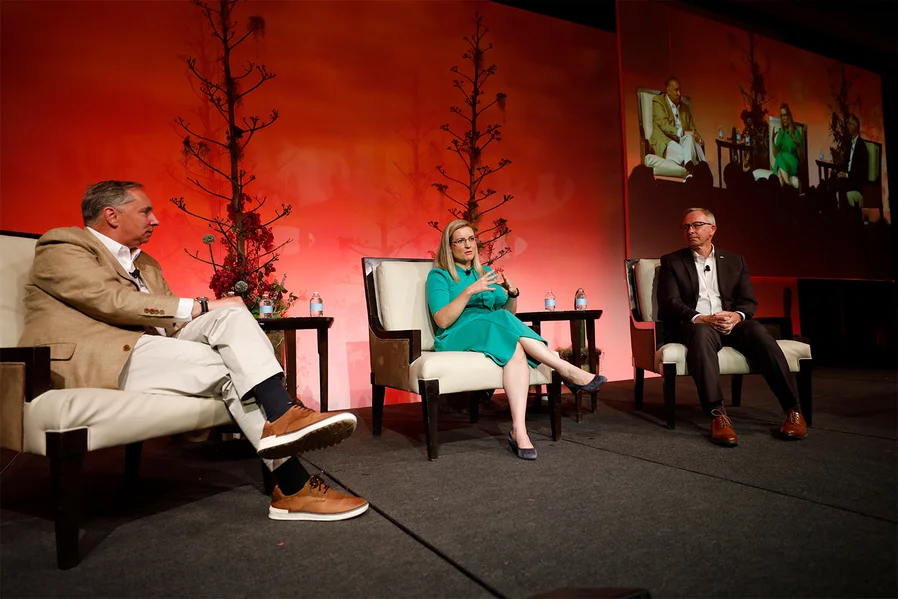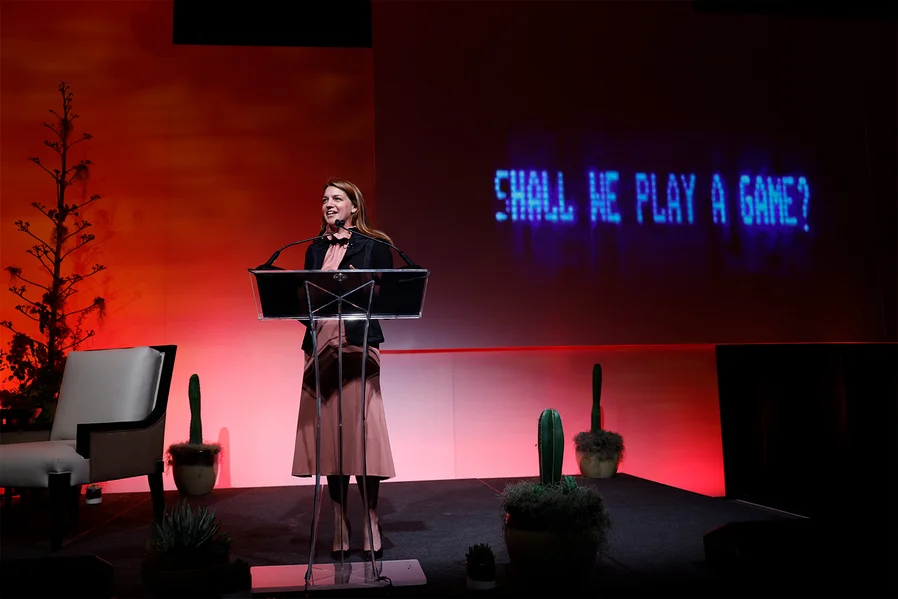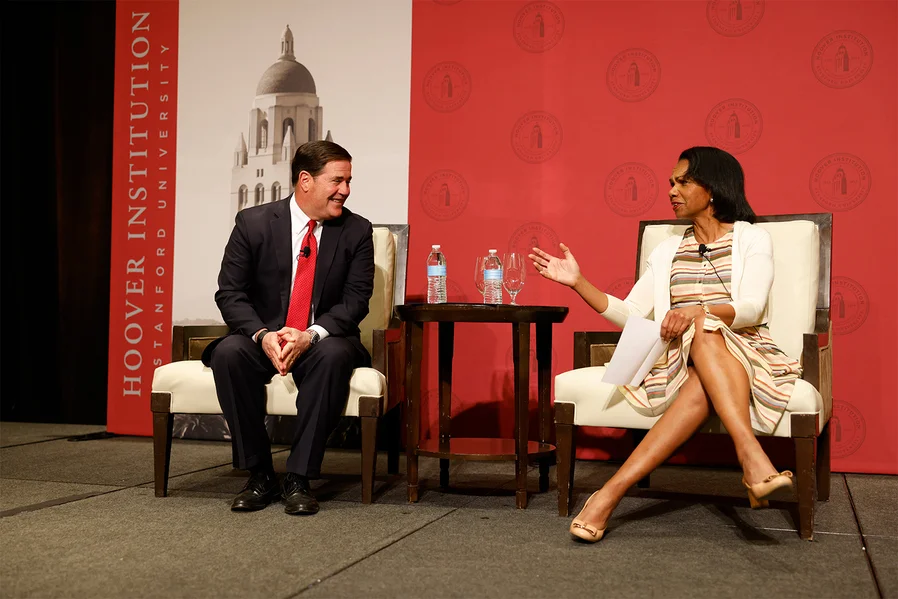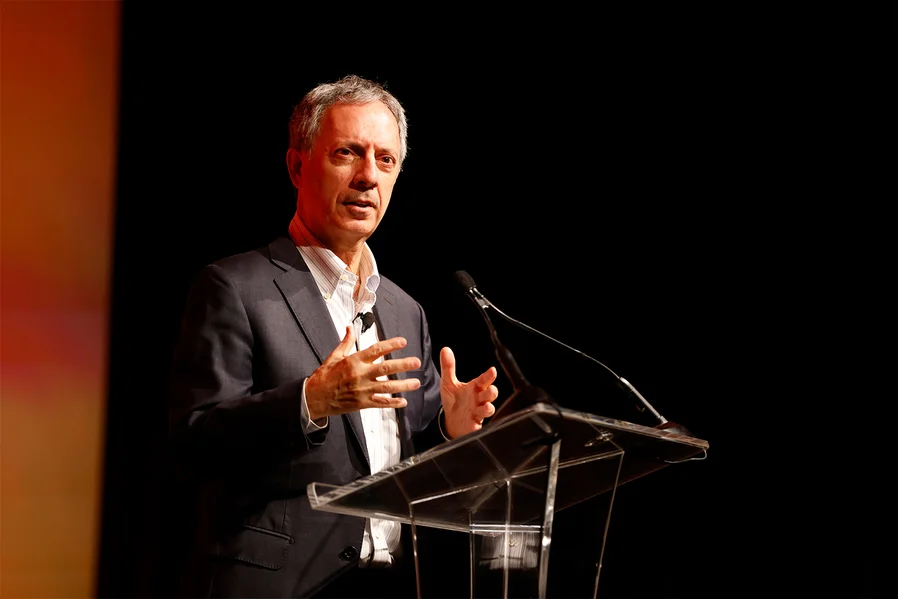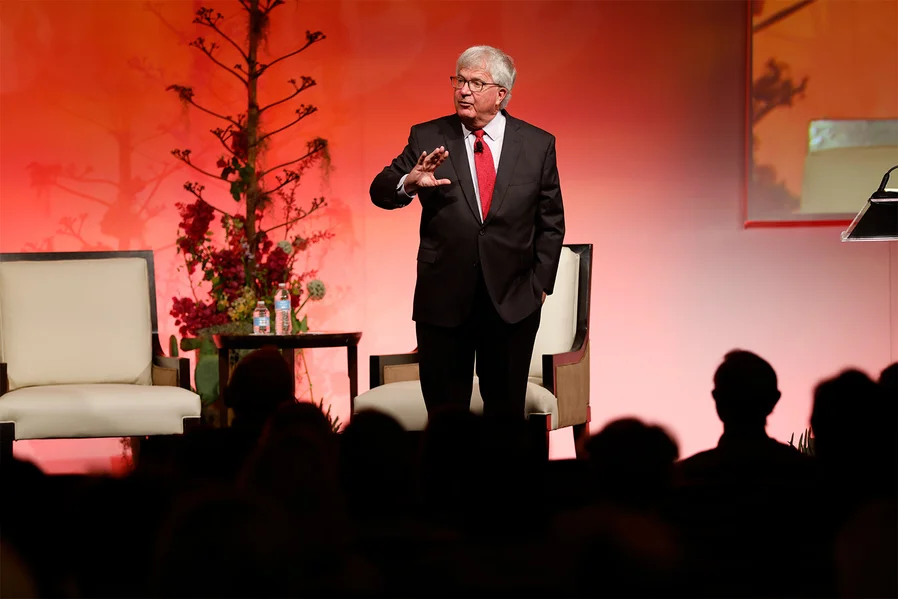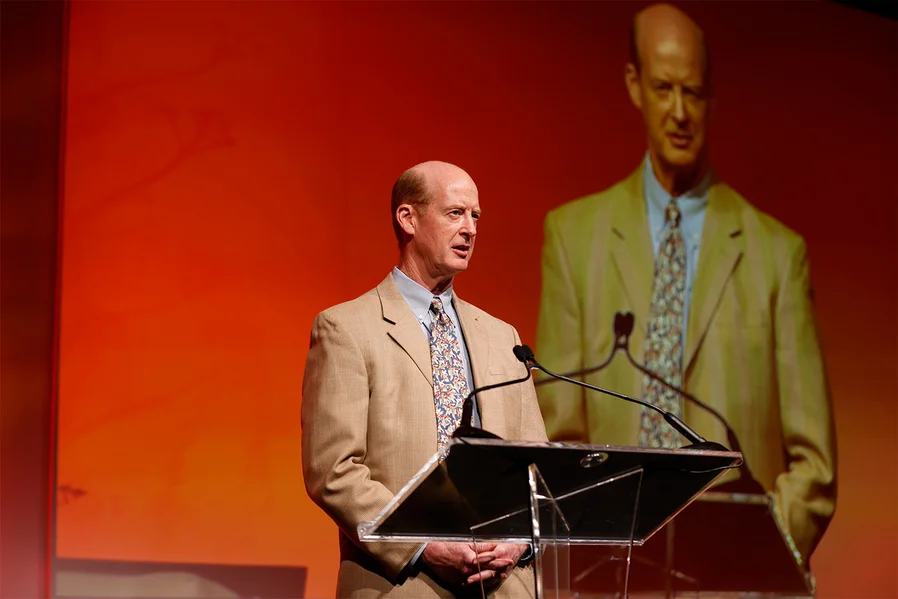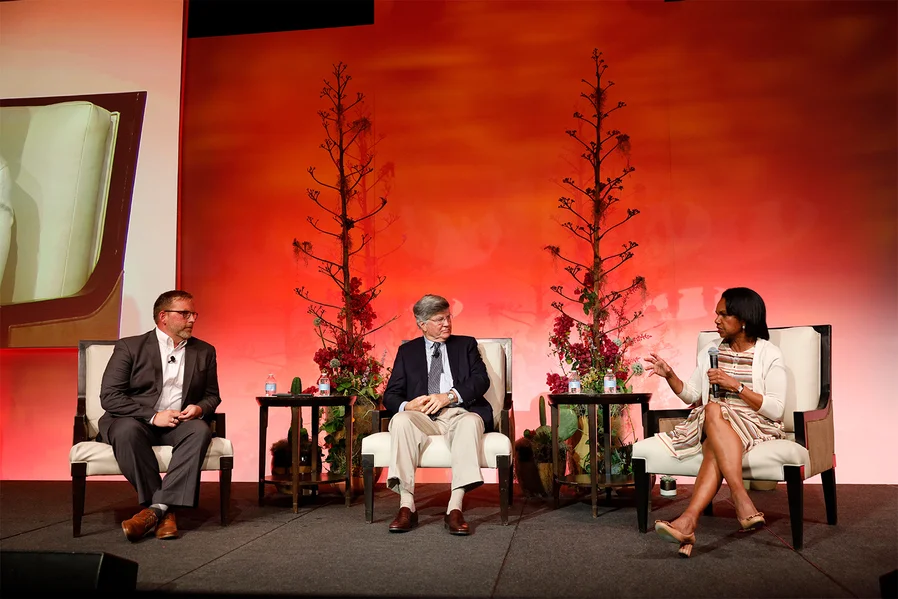Scottsdale, Arizona – The Hoover Institution welcomed its overseers and supporters for its spring retreat in Scottsdale, Arizona, from Thursday, April 21, through Saturday, April 23, marking the first time the annual event was hosted off the Stanford campus.
The retreat focused on a full spectrum of issues including United States’ policies toward China and Russia, the current inflation crisis, the nation’s energy security, the importance of history in American education, the philosophical balance of the US Supreme Court, the strength of American democratic institutions, and how US leaders and the public should think about foreign cyber threats.
Tad and Dianne Taube Director Condoleezza Rice gave introductory remarks at the retreat on Thursday, in which she emphasized the Hoover Institution’s commitment to preserving the values of free markets, limited government, and individual liberty, as well as transferring its knowledge about improving the human condition to younger generations.
Retreat sessions began with a VIP lunch program featuring Rose-Marie and Jack Anderson Senior Fellow John Cochrane’s analysis on whether the Federal Reserve can effectively curb inflation.
Lunch was followed by a panel with research fellows Glenn Tiffert and Kharis Templeman along with Hoover Fellow Erin Baggott Carter on the implications of the “partnership without limits” forged by Russian president Vladimir Putin and Chinese leader Xi Jinping on the sidelines of the 2022 Beijing Winter Olympics. In the conversation, the Russia-China relationship was described as a marriage of convenience, whose vulnerabilities were exposed when the Kremlin made the decision to invade Ukraine. The invasion compromised China’s economic interests in the West and further complicated Beijing’s efforts to reunite Taiwan with the mainland.
The second session on Thursday featured Senior Fellow David Leal, who spoke about the influence of Latinos in American politics. He explained that many strategists on both sides of the aisle are mistaken to assume that “demography is destiny.” In this instance, some Republicans believe that a surge of Latino voters means the death knell of the GOP. Meanwhile, Democrats hold that if they can register large numbers of Latinos, they will be able to capture all of Texas’s forty electoral votes and thus achieve an uncontestable electoral college majority. Both sides are wrong, Leal asserted. The Latino vote isn’t monolithically Democratic, and voting trends within Hispanic communities are very similar to those of the general population.
The final afternoon session on Thursday featured Senior Fellow Arun Majumdar, the Jay Precourt Provostial Chair Professor at Stanford University. He presented on how the United States can best balance its national, economic, and energy security needs. He advocated for reducing Western dependence on Russian oil by increasing energy output among the United States and its allies, while at the same time promoting economic efficiency measures (such as reducing consumption and utilizing alternative forms of energy). Majumdar also stressed that these short-term measures should be balanced with policies that address long-term climate challenges, including government investment in R&D, deregulation, and other incentives that would significantly reduce carbon emissions.
The evening keynote remarks were given by Milbank Family Senior Fellow Niall Ferguson and Martin and Illie Anderson Senior Fellow Victor Davis Hanson, who shared their analysis on the reasons for the decline of the study of history at the academy. History departments, they noted, focus on narrow questions that have little practical application and have largely neglected subject matter—such as the history of economics, the military, and statecraft—that are helpful in shaping public policy. Both Hanson and Ferguson asserted that the Hoover Institution will play a critical role in preserving the quality of historical inquiry and research in the academy by cultivating younger generations of scholars and employing them within the ranks of the fellowship.
On Friday morning, Virginia Hobbs Carpenter Distinguished Policy Fellow in Journalism Bill Whalen moderated a discussion between Kate Gallego and John Giles, the mayors of Phoenix and Mesa, Arizona, respectively. The two mayors described how they addressed the challenges they faced in managing city government throughout the COVID-19 pandemic, as well as the policies they implemented to improve K–12 education, ensure public safety, mitigate homelessness, conserve scarce water resources, and absorb large influxes of new residents into the Grand Canyon State’s economy.
The mayors’ talk was followed by remarks from Davies Family Distinguished Fellow James Mattis, who stressed the importance of a strong alliance system in executing diplomacy and military operations. He maintained that despite America’s loss of credibility, caused by the ignominious withdrawal from Afghanistan, US policy makers have made up for a significant amount of that damage in their response to Russia’s invasion of Ukraine. Prior to the war, he said, the intelligence community had effectively penetrated the Kremlin and accurately deciphered President Vladimir Putin’s designs in Ukraine. In concert with NATO allies, US policy makers deployed a devastating tranche of sanctions on Moscow and supported Kyiv with materiel necessary to deter an onslaught by the Russian military.
The Friday morning sessions concluded with a presentation by Hoover Fellow Jacquelyn Schneider, who described her work conducting war games, the importance of which she underscored in generating data for historically unprecedented events such as cyberattacks. A former Air Force officer and professor at US Navy War College, Schneider said she has been afforded significant academic freedom by the Hoover Institution to conduct this cutting-edge form of research. Civilian government and military officials, as well as business professionals, have participated in war games that she has hosted on the Stanford University campus. To her retreat audience, she offered insight gleaned from these war games on the nature of cyber threats, which she argued would rarely escalate to the use of conventional and nuclear force.
During lunch, Arizona governor Doug Ducey participated in a conversation led by Condoleezza Rice in which he touted the policy achievements of his two terms in office. He described the expansion of school-choice opportunities (including new charter schools and families’ access to Education Savings Accounts), as well as the diversification of the state’s economy. Arizona, Ducey explained, traditionally reliant on the growth of construction and tourism, has become an attractive location for the tech sector—including a burgeoning semiconductor industry, which helps solve a critical supply-chain vulnerability for America’s economy and national security: nearly 70 percent of the world’s chips are produced in Taiwan, which faces an existential threat from mainland China. Ducey also said that Arizona has added more than 400,000 new jobs since he was inaugurated in 2015, and that the state’s business-friendly tax environment has produced a $5.2 billion surplus during the current fiscal year.
The afternoon sessions began with Tad and Dianne Taube Senior Fellow Peter Berkowitz, who provided details about a course he is teaching to Stanford undergraduates about the history and philosophical principles of conservatism, through a new American civics program at the university. He emphasized that the instruction of multiple philosophical perspectives is the hallmark of a quality liberal education. Citing John Stuart Mill, Berkowitz said that people who make erroneous arguments benefit from being corrected by their peers. For those minds who are correct in their assertions, they receive value from an environment in which they must articulate themselves and not take for granted the superiority of their reasoning. Neither of these circumstances are typical, Berkowitz explained. People are most often partially right and wrong in their beliefs, which is why it is optimal for the academy to foster an environment where everyone is willing to listen to one another’s opinions.
Senior fellow and Stanford Law professor Michael McConnell followed Berkowitz’s remarks with analysis of Kentaji Brown Jackson’s recent confirmation to the US Supreme Court and a series of cases in which the nine justices will cast a decision, including those covering issues involving abortion rights, religious freedom, COVID-19 restrictions, gun control, and school choice. He maintained that conservative lawmakers should have more thoughtfully engaged Judge Jackson on her constitutional philosophy during Senate confirmation hearings instead of making statements that were intended to achieve political gain. The acrimony displayed by Republicans in the hearings, McConnell contended, could potentially deter Judge Jackson from finding common ground with her conservative future colleagues on the bench.
During the final presentation, Distinguished Visiting Fellow David Kennedy and Senior Fellow Justin Grimmer, in a conversation with Condoleezza Rice, described the erosion of trust and confidence in American political institutions, a process that began in the 1960s, a turbulent decade marked by domestic upheaval and the lengthy war in Vietnam. The implications of this erosion were recently experienced during the 2020 presidential election: while voter turnout was unprecedentedly high, vocal proponents on each side of the political aisle expressed general distrust in the outcome. While the Right contested the results, alleging voter fraud, the Left decried state voting integrity legislation that followed the election as voter suppression and “Jim Crow 2.0.” Rice concluded the conversation by underscoring the importance of preserving America’s electoral process and other founding institutions. She explained that allowing these institutions to be undermined may give rise to unimaginable consequences, including the growth of state power that doesn’t respect the will of the people; or worse, partisans resorting to violence in pursuit of their political goals.
On Saturday, overseers and supporters attending the retreat participated in the 2022 Hoover Institution Golf Classic. View the photo gallery below:







